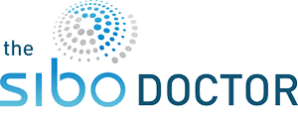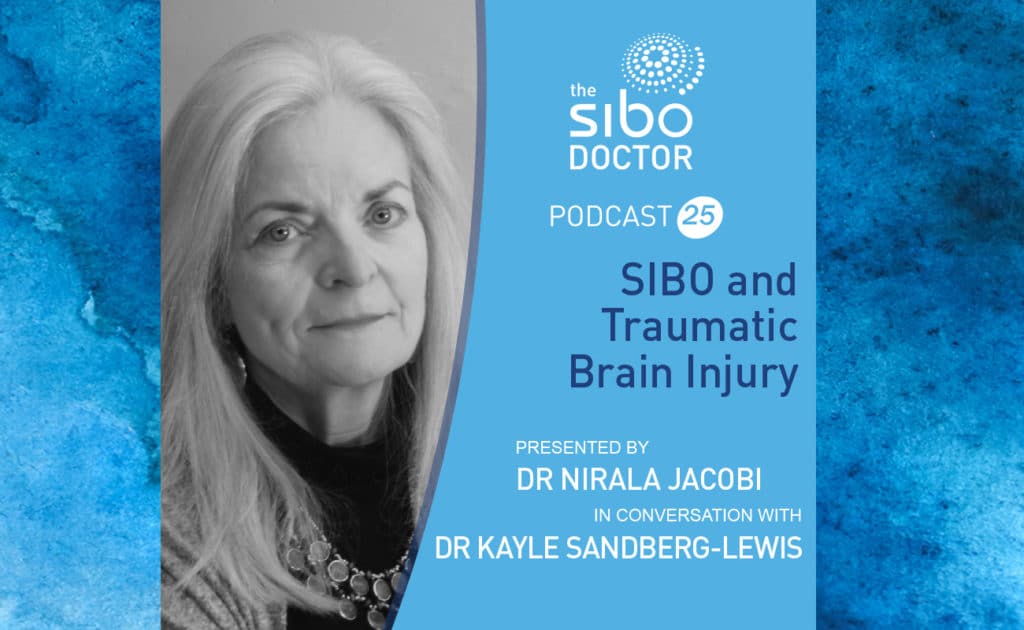In today’s episode, Dr Nirala Jacobi is in conversation with Kayle Sandberg-Lewis. Kayle recently gave a lecture at the New Orleans SIBO conference on traumatic brain injuries (TBI) and SIBO.
Kayle holds a master’s degree in Behavioral Medicine and has a private practice specializing in acquired brain injuries, anxiety and stress-related disorders.
In recent years, she has been exploring the link between brain injuries and gastrointestinal disorders.
Board-certified by the Biofeedback Certification International Alliance as a Neurofeedback Practitioner, she is also trained in peripheral biofeedback. Kayle has several tools at her disposal to help the disordered brain calm itself and function more optimally thereby leading to improved vagal tone.
Kayle serves as adjunct faculty at the National University of Natural Medicine where she created the Applied Psychophysiology track in the Master of Science in Integrative Mental Health.
Listen to the Episode
Topics discussed include:
- How Kayle entered the traumatic brain injury field.
- SIBO, the migrating motor complex, and how TBI can impact this.
- Differentiating parasympathetic and sympathetic nervous system dominance.
- The risks of sympathetic dominance to the digestive system.
- What common injuries are actually classed as TBIs, and how might this contribute to gastrointestinal health?
- The cumulative effect of minor head injuries.
- The microglia (immune system of the brain), how they become hyper sensitised and hyper-reactive and why this forms a positive feedback cycle for neuroinflammation.
- The importance of taking case histories for patients that include all minor brain injuries.
- Questions to ask your patients to uncover hidden TBIs.
- Spinal injuries and how this impacts the brain.
- Ulcerations in diffuse axonal injuries (DAIs).
- Signs and symptoms to look out for to uncover TBIs.
- Emotional lability due to TBI and erroneous psychiatric diagnoses when TBI is involved.
- Is it difficult to turn off microglial activation once triggered via TBI?
- What does Kayle do in her neurofeedback practice?
- The perturbation model of neurofeedback.
- The importance of diet in brain repair, and the importance of a united practitioner front for optimal patient recovery.
- The neurofeedback system that Kayle uses is LENS – Low Energy Neurofeedback System.
- The perturbation model of neurofeedback and how it differs from other models in terms of prompting the brain to reprogram itself, versus exercising the brain through repetition (which is required for longer periods and with more frequency for results).
- Breathing techniques to trigger the rest and digest response.
- The Bohr Effect and the importance of retaining carbon dioxide in the system for parasympathetic activation.
- Genetic factors determining the severity of the effect of TBI.
- The connective tissue issues in Ehlers Danlos and the connection to increased lesions in the brain.
- Resources for practitioners on how to decrease inflammation in the brain:
- Dr Datis Kharrazian’s book – Why isn’t my brain working?
- Brain nutrients to help reduce brain inflammation, such as bacopa, fish oils, huperzine, and vinpocetine.
- The importance of massage – lowers arousal and inflammation.
- When to consider TBI in SIBO treatment, and when not to.
Resources
- Kayle SSL website
- kaylesandberglewis.com
- [email protected]
- Facebook – Kayle Sandberg-Lewis
- Gastrointestinal practicum with Dr Steven Sandberg-Lewis
- Glen Sowinski – Functional Neurologist
- The neurofeedback system that Kayle uses is LENS – Low Energy Neurofeedback System.
- Dr Datis Kharrazian’s book – Why isn’t my brain working?

